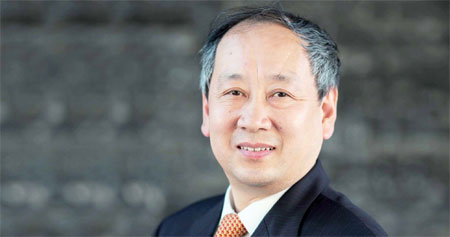Innovation's baton carriers
|
Zhang Weijiong, vice-president of China-Europe International Business School, says Chinese MSEs should focus more on innovation and take steps to increase brand recognition. Provided to China Daily |
Small businesses have key role to play in China's economic growth, says top academic
Micro and small-sized enterprises have played an important role in spurring innovation in China, and it is possible that over time some may become huge companies like Google or Microsoft, says an official at a leading Chinese business school.
"MSEs have a head start over bigger firms in promoting innovation as they are more adaptable and flexible," says Zhang Weijiong, vice-president of the China-Europe International Business School in Shanghai.
Zhang says big firms usually take a long time to take decisions, so innovation becomes a gradual process for them. "However, in the case of MSEs, the innovation process is often fast and highly efficient."
Zhang, who has had a long and distinguished academic career, is considered an expert on the private economy and MSEs in China. He has taught at academic institutions including the Shanghai Jiao Tong University and taken part in international conferences.
He says that MSEs have played a vital role in the Chinese economy since the reform and opening-up process began. "Despite the shortage of capital and human resources, during the process of national economic transformation, MSEs have helped ensure social stability by providing employment opportunities," Zhang says. "What's more gratifying is that they are now playing an important role in promoting innovation."
The Internet has opened a new low-cost platform for MSEs to promote innovation, he says.
"It is unrealistic for the MSEs to compete with big companies in traditional manufacturing industries that require huge investments.
"Developing new technologies is the only way out for these companies."
Bruno Berthon, consultancy firm Accenture's global managing director for strategy and sustainability services, says that MSEs have inherent advantages over big businesses.
"Through the extensive use of new technologies, especially mobile technologies, data analytics, machine to machine connectivity, social media and cloud technologies, MSEs can create new and innovative products, provide better services and also reach customers faster," Berthon says.
Falling costs of access to new technologies create a favorable environment for MSEs, he says, enabling them to have significant opportunities to experiment and develop new business models that can reshape existing value chains.
"We expect to see a shift in the leading source of innovation toward entrepreneurs and MSEs," he says.
Zhang says that since China is slowly losing its advantage as a low-cost manufacturing destination, it is important to add more impetus to the MSE efforts to spur innovation.
"Unlike before, when everyone could make money from the domestic market by virtue of cheap labor and strong demand, it is essential for companies to move up the value chain and provide more value-added services and products especially as they have to grapple with challenges like rising costs and currency fluctuations," Zhang says.
What this means is that Chinese MSEs will have to focus more on innovation in research and development, and also take steps to increase their brand recognition, he says.
The good thing is that the overall business environment for Chinese MSEs has improved considerably in the last two decades.
"Unlike Silicon Valley in the US, where MSEs can bank on a complete and sound infrastructure system for growth, China still needs to provide more support to facilitate development of MSEs, such as promoting collaboration between the research institutes and companies more effectively," Zhang says.
Funding is still a major challenge for MSEs, and this was highlighted by the financial problems that MSEs faced in cities like Wenzhou in Zhe-jiang province in 2011.
"MSEs are suffering a lot in China due to funding problems. I think it is crucial to find ways for banks to lend more to them. However, this problem is not exclusive to China. It is going on in other parts of the world, too," Zhang says.
Chinese MSEs must continue their drive for job creation and sustainable growth by fostering stronger collaboration with big businesses to access new markets, specific skills, funding and expensive technologies, he says.
"The MSEs can also step into those industries and areas that the big companies are not keen on pursuing and also take up supplementary business with the big companies," Zhang says.
Chinese MSEs can also play an important role in promoting innovation due to the vast domestic market, he says.
Despite the increasing challenges and difficulties, many Chinese MSEs are still keen on improving their innovative prowess.
According to a recent report published by global consultancy firm Accenture, Chinese entrepreneurs are more confident than their G20 counterparts on entrepreneurial innovation. More than 91 percent of the Chinese entrepreneurs expressed confidence in spurring entrepreneurial innovation, compared with 84 percent on average in the G20 countries, the report said.
"Many of the big and influential companies like Microsoft and Google started off as small companies," Zhang says. "I am confident that many Chinese MSEs will also reach similar heights through their drive for innovation."
huhaiyan@chinadaily.com.cn



















